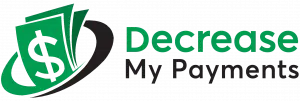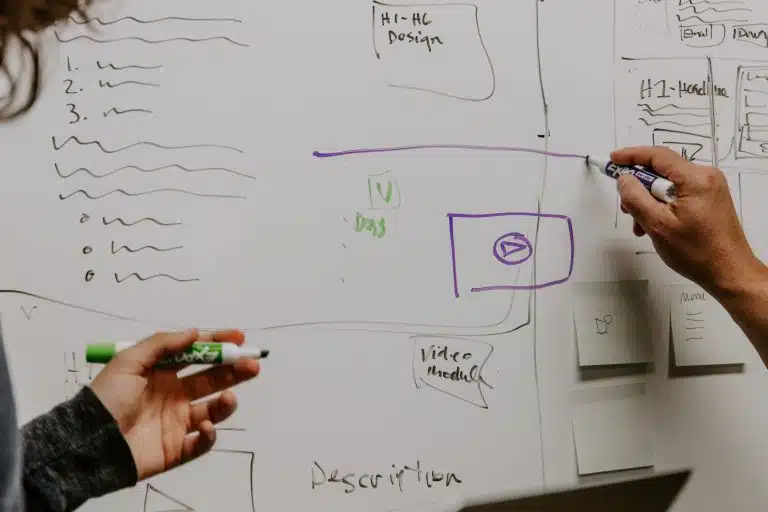Understanding debt settlement means knowing your last resort towards debt freedom. If you’re figuring out how to get out of debt, you may have stumbled upon this method. While you may be tempted to apply, we advise you to check out other loan management options. Settlement may cause long-term damage to your finances and credit report.
Are you struggling to pay off a high amount of debt? If so, it may be tempting to turn to a debt settlement company in hopes of reducing the amount you owe.
Debt settlement is a service offered by third-party companies that can try to reduce your debt by negotiating settlements with your creditors or debt collectors. Some debt settlement companies may be successful at reducing your debt, but their services and programs also come with risks that could leave you deeper in debt. Debt settlement could even end up damaging your credit.
Here’s some key information you should know about how debt settlement works, its pros and cons, and how it could affect your credit.
Find out if you qualify for payment reduction
How Debt Settlement Works
Otherwise referred to as “debt adjusting” or “debt relief,” it’s a procedure provided by private companies. These organizations negotiate with your lenders for you in order to form a favorable payment plan or loan reduction. In return, they typically charge a fraction of what you’ll save on the settled amount.
While they are negotiating a settlement, you may be required to pay regularly into an escrow, third-party account. This is where you will save funds for the settlement offer. Also, you will be asked to refrain from paying your loans until an offer is secured.
After reaching an agreement, you must accept it. At least one of your loan’s terms will be modified and you are obligated to pay the new amount. In addition, you must pay the fees from the debt settlement company. Ultimately, this deal must allow you to repay lower than your original, full amount.
Debt Settlement Advantages
For every way to get out of debt, there are boons and banes. Of course, settlement helps in paying off debts faster because you end up with smaller monthly payments. These deals give you a window of 24 to 36 months to repay the reduced amount and avoid bankruptcy. This might immensely assist those with overwhelming credit card debts and other balances.
Risks of Debt Settlement
However, the risks more often outweigh its benefits. As we’ve mentioned, your creditors may refuse to settle your debt. Worse, some may outright decline negotiations with settlement organizations. Furthermore, you have to pay more fees after approving the agreed settlement and making the stipulated payments.
You may accrue more debt, making the deal counterintuitive. Since you will be advised to refrain payments during ongoing settlement discussions, you may accumulate penalties. Late fees and interest are not covered by debt settlement companies. In addition, part of your forgiven debt will be considered taxable, further piling an expense over your finances.
Lastly, settlement may leave a lasting and devastating impact on your credit report. Particularly, it can affect your credit utilization for credit scoring. This factor is the ratio of your credit balances and your total credit limit from all your accounts. For instance, a $500 balance and a $1,000 credit limit will result in 50% credit utilization.
It is advised that you keep that rating 30% lower than your limit across all your cards. It’s a third of your overall FICO score, and its counterpart VantageScore considers it “highly influential.” Nevertheless, loan settlement still serves as a last resort for those straining to repay their debts. This may help if you’re in such a financial bind that you can’t pay your debts in 12 months.
Find out if you qualify for payment reduction
Debt Settlement Pros and Cons
Reasons Why You May Benefit From Debt Settlement.
- Reduce Payments & Payoff fast.
- Avoid Bankruptcy.
- Get Relief From Overwhelming Debts.
- Repay Your Debts in 24-36 months.
- Avoid paying high compound interest rates.
Reasons Why You May Benefit From Debt Settlement.
If you stop making payments on a debt, you can end up paying late fees or interest. You could even face collection efforts or a lawsuit filed by a creditor or debt collector. Also, if the company negotiates a successful debt settlement, the portion of your debt that’s forgiven could be considered taxable income on your federal income taxes — which means you may have to pay taxes on it.
Debt settlement companies can’t collect a fee until they’ve reached a settlement agreement, you’ve agreed to the settlement, and you’ve made at least one payment to the creditor or debt collector as a result of the agreement.
Credit utilization is the ratio of your outstanding credit balances (on both credit cards and lines of credit) compared to your overall credit limit combined across your accounts. For example, if you currently have a balance of $500 against your $1,000 credit limit, your credit utilization is 50%.
Experts advise keeping your usage below 30% of your limit — both on individual cards and across all your cards. In the widely used FICO scoring model, your credit utilization accounts for about one-third of your overall score, while its competitor, VantageScore, calls it “highly influential.”
If it makes it really hard for you to pay down your balances within 12 months and your income has been reduced or experiencing financial difficulty. It may be the best option!
Debt Settlement Alternatives
Luckily, there are better ways on how to get out of debt. You may try such methods as debt consolidation, credit counseling, and do-it-yourself debt management. These are often more effective and less risky compared to settlement. If all else fails, the last resort is to file for bankruptcy.
Debt Consolidation
This involves paying your creditors with a borrowed lump sum payment. You will then have to repay it monthly with a lower interest rate over a longer period. Unlike debt settlement, consolidation doesn’t reduce your principal. This can be done by using a personal loan, balance transfer credit cards, home equity loans, and your 401(k).
A personal loan is an unsecured debt from financial institutions. It involves no collateral, few limitations, and online or offline lenders. However, you may be offered unfavorable rates if you have a bad credit rating. In addition, online and offline institutions charge origination fees and some require membership.
You may get a balance transfer from credit card companies. Balance transfer cards have a 0% APR introductory period, requiring 3% to 5% of the amount you’ll transfer. This will help you repay your debts without interest after 12 months or so. After, regular interest rates will apply.
Some methods on how to get out of debt require collateral like home equity loans. Equity is the difference between your mortgage payments and your home’s current value. You may borrow around 85% of that for a loan or you may use portions for a line of credit (HELOC). Unlike other financial management methods like settlement, you risk losing your house.
Lastly, you may borrow from your 401(k) to become debt-free. These usually charge lower interest compared to unsecured loans. It will not tarnish your credit report, but your retirement is risked as collateral. You will face tremendous fines for late payment and a 60-day deadline if you’re unemployed.
Check if you qualify in two simple steps
- Step 1 –
- Step 2 –
Credit Counseling
Most people struggle with debt due to poor money habits and credit counseling may help with both. This involves a company that will negotiate a longer payment period and smaller rates on your behalf. Unlike settlement and consolidation, it will give you money management strategies and habits.
It aims to help you to repay your loans easier and it teaches money habits to prevent such dire financial situations. What’s more, some may stop debt collectors from notifying you, so you may focus on your debt management plan. However, it may require using only one emergency credit card and their results may vary.
Do-it-yourself
You may even take a hands-on approach on how to get out of debt. Instead of asking for settlements, you may utilize free lessons and resources online. There’s an abundance of websites that provide free guidance and finance tools. In fact, there are two DIY measures you may implement called the debt avalanche and the debt snowball.
The avalanche method involves paying your balances in descending order. You start with the largest one to keep the other ones from growing in interest. This will pay off your debts faster compared to the snowball technique.
Conversely, you pay in ascending order with the snowball method, starting with the smallest amount. You may be more motivated to stick with this method. Completing your smaller balances may spur you to continue with the program. Saving for the largest debts may feel frustrating as you don’t feel any closer to debt freedom.
Take note that doing it without professional intervention may prove difficult and ineffective. You will have to navigate through the many tax computations, so you may struggle if you dislike math. Also, incorrectly handling debt management by yourself may pull you further from a debt-free life.
There are many ways on how to get out of debt such as settlement, consolidation, counseling, and do-it-yourself methods. If all else fails, you may need to file for bankruptcy. We recommend trying the methods we’ve discussed, as bankruptcy risks your assets and your credit report. More importantly, spend wisely and save diligently to avoid dire financial straits.









